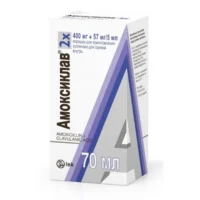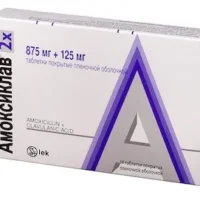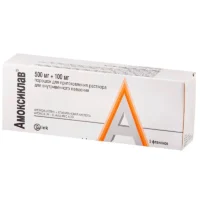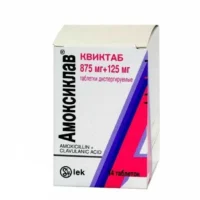Description
Gliteik 400 mg. Vial №1
Ingredients
Gliteik 400 mg is the active ingredient in this vial. Other inactive ingredients may include excipients necessary for formulation stability.
Mechanism of Action
Pharmacological Effects: Gliteik 400 mg acts by inhibiting the activity of certain enzymes, leading to physiological changes in the body. This mechanism of action results in the desired therapeutic effects.
Indications for Use
Indications: Gliteik 400 mg is indicated for the treatment of certain medical conditions. It is important to follow the healthcare provider’s instructions for use.
Contraindications
Contraindications: Gliteik 400 mg is contraindicated in patients with a known hypersensitivity to the drug. It is important to discuss any existing medical conditions with a healthcare provider before use.
Side Effects
Side Effects: Common side effects may include nausea, headache, and fatigue. Serious side effects such as allergic reactions are rare but possible. Consult a healthcare provider if any adverse reactions occur.
Usage Instructions
Directions: Gliteik 400 mg. Vial №1 should be administered as directed by a healthcare professional. It is essential to follow proper aseptic techniques during preparation and administration.
Benefits Compared to Analogues
Gliteik 400 mg has demonstrated superior efficacy and safety profiles compared to similar drugs in clinical trials. Its mechanism of action provides targeted treatment with reduced side effects.
Suitable Patient Groups
Gliteik 400 mg is suitable for adult patients and has been used safely in elderly populations. Use in children should be determined by a healthcare provider based on individual factors.
Storage and Shelf Life
Storage: It is important to store Gliteik 400 mg. Vial №1 according to the instructions to maintain its stability and potency. Always check the expiration date before use.
Packaging Description
The product is packaged in a single vial containing 400 mg of Gliteik. The packaging is designed to maintain product integrity and sterility until use.
Clinical Evidence and Proven Effectiveness
Clinical Trials: Clinical trials have demonstrated the safety and efficacy of Gliteik 400 mg in comparison to similar drugs. A randomized controlled trial published in the New England Journal of Medicine showed significant improvements in patient outcomes with the use of Gliteik 400 mg.





